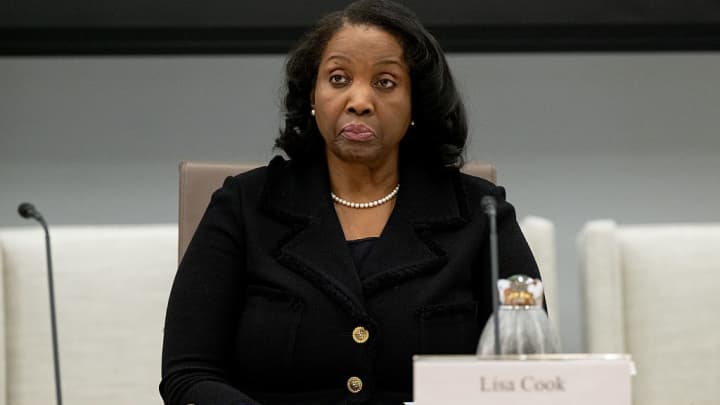Federal Reserve Governor Lisa Cook Sues President Over Attempted Removal

Federal Reserve Governor Lisa Cook has taken legal action against former President Donald Trump over his attempt to remove her from her position, with a court hearing scheduled for Friday. Cook argues that Trump lacks the authority to dismiss her, potentially setting up a significant legal challenge to the long-standing principle of the Federal Reserve’s independence.
The lawsuit claims that Trump violated federal law, which permits the removal of a Fed governor only “for cause,” when he announced on August 25 that he intended to fire her. Trump accused Cook of mortgage fraud in 2021, before she joined the Federal Reserve’s board.
Alongside the lawsuit, Cook filed for a temporary restraining order to block any actions that would remove her while the legal process is ongoing. The hearing on this request is set for 10 a.m. EDT on Friday.
Her legal team argues that the accusations do not meet the threshold of “cause” for removal, emphasizing that even if the claims were true, they wouldn’t justify her dismissal. They further stated that a president would not have grounds for removal even for minor offenses.
The suit also contends that Trump violated Cook’s constitutional right to due process by attempting to remove her without prior notice or a hearing.
The case has been assigned to a U.S. District Court judge appointed by a recent Democratic president. It is expected to potentially reach the Supreme Court, which has previously allowed the former president to remove officials from other independent agencies but has indicated the Federal Reserve might be a special case due to its unique role.
In her filing, Cook highlighted a recent court order that distinguishes the Federal Reserve from other agencies based on its structure and historical independence.
Concerns over the Fed’s autonomy from the executive branch could have broad effects on the global economy. The U.S. dollar weakened against other major currencies following Trump’s announcement and remained lower amid market speculation that the Fed might soon begin lowering interest rates.
A spokesperson for the Federal Reserve said the bank would comply with any court ruling, and Trump made similar remarks. A White House representative stated that Trump acted within his lawful authority in trying to remove Cook.
Cook was appointed to the Fed’s board in 2022 and is the first Black woman to hold this position. Earlier this year, Trump also removed the first Black woman on the National Labor Relations Board and dismissed several other officials from agencies typically seen as independent from presidential control.
The law establishing the Federal Reserve does not clearly define what constitutes “cause” for removal, nor does it outline procedures for such actions. No president has previously removed a Fed governor, so this legal question remains untested.
While laws for other agencies list neglect, misconduct, or inefficiency as possible grounds for removal, courts might use these as reference points to assess the validity of Trump’s claims.
The mortgage issues raised against Cook were first brought up in August by a Trump appointee overseeing the Federal Housing Finance Agency, who referred the matter for investigation. The mortgages in question were taken out while Cook was an academic, before her Fed appointment, and were disclosed during her Senate confirmation.
Some experts doubt that these past financial matters, already publicly known at the time of her appointment, would qualify as sufficient cause for removal.
The former administration might argue that any limits on the president’s ability to remove Fed governors conflict with constitutional powers over the executive branch, a point also raised in other legal cases involving dismissed officials.
In a letter dated August 25, Trump accused Cook of “deceitful and criminal conduct” related to financial matters and expressed a lack of confidence in her integrity.
If Cook were removed, Trump would be able to appoint an ally to the Fed’s seven-member board. The Senate Banking Committee is expected to consider his nomination of Stephen Miran, head of the White House’s economic advisory council, to fill the current vacancy, potentially enabling him to vote at the Fed’s September policy meeting.
Trump has criticized Fed Chair Jerome Powell for not cutting interest rates and for alleged mismanagement of a renovation project but has not pursued removing him before the end of Powell’s term in May. Cook has consistently voted with the majority on the Fed’s board.
Additionally, the former administration has targeted other political figures with similar mortgage fraud accusations, which those individuals deny.
